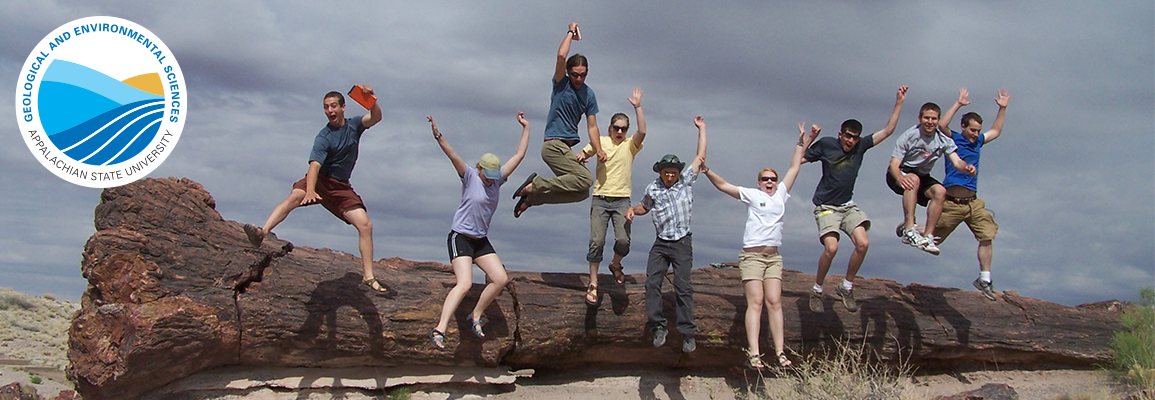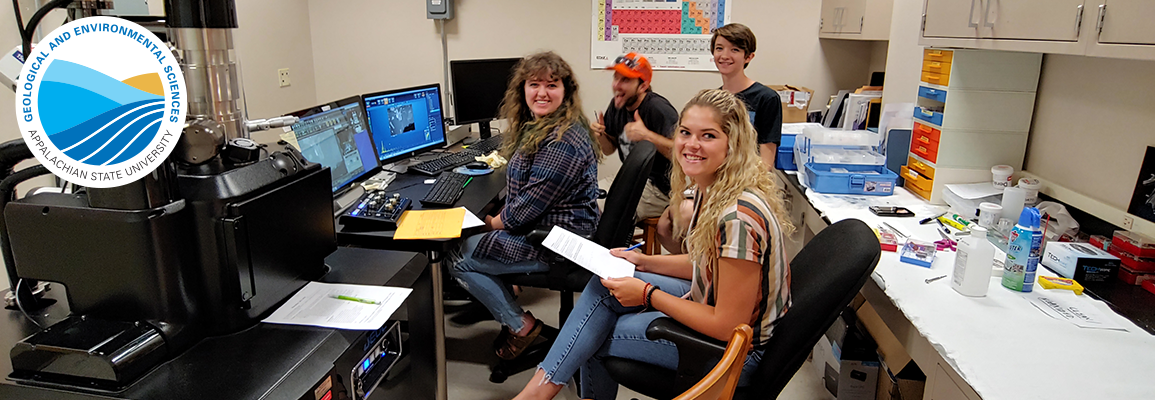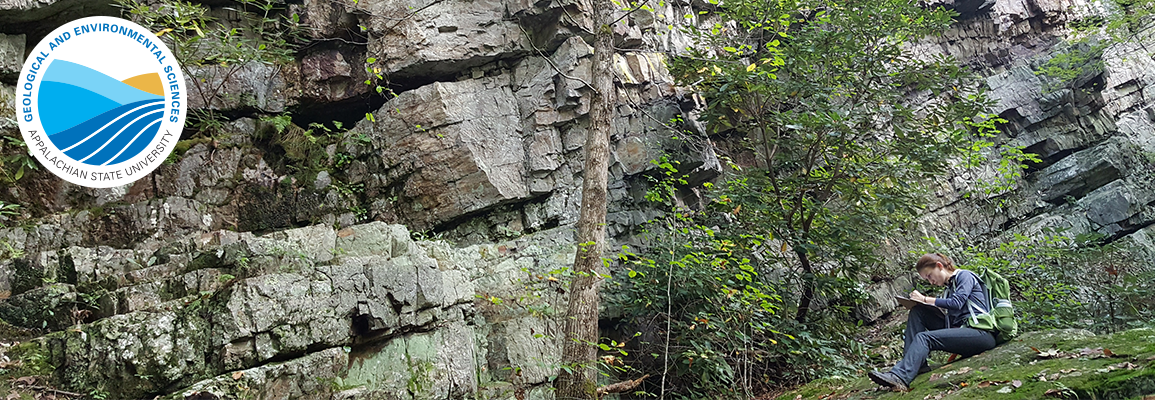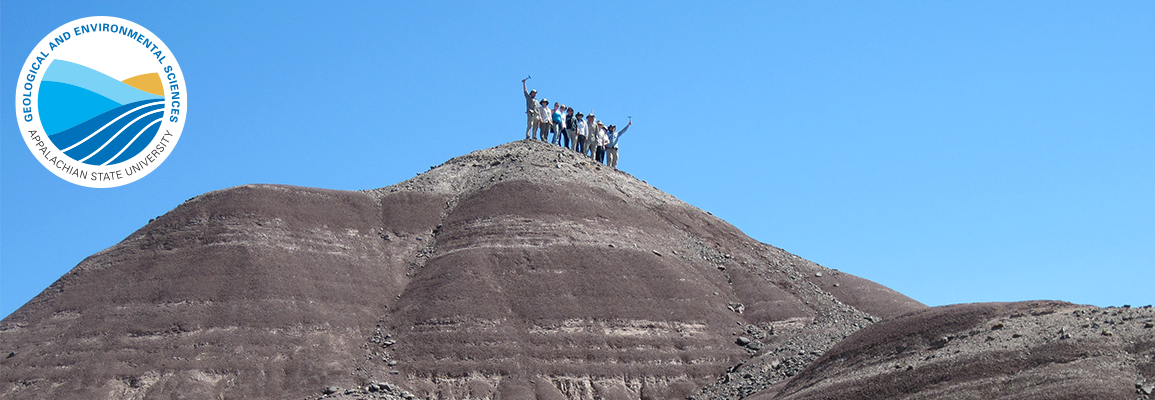About the GES Department
The Appalachian State University Geological and Environmental Sciences (GES) Department provides students with a solid foundation on which to build a successful career in the geosciences and environmental sciences.
We are the largest undergraduate geosciences department in the UNC system, and we have been successful in establishing a program that is arguably among the best Bachelor degree programs in earth and environmental sciences available in the southeastern United States.
GES offers the following degree programs and concentrations
- Environmental Science (BS) - Earth Systems Science Concentration
- Environmental Science (BS) - Natural Resources Concentration
- Environmental Science (BS) - Quantitative Environmental Science Concentration
- Geology (BA)
- Geology (BS)
- Geology (BS) - Environmental Geology Concentration
- Geology (BS) - Paleontology Concentration
- Geology (BS) - Quantitative Geoscience Concentration
- Geology (BS) - Earth/Environmental Science, Secondary Education Concentration
See our Get Involved! page for opportunities for GES students in research, outreach, and teaching.
What should I major in?
Many students (and parents) come into our program a bit confused as to what the geosciences and environmental sciences actually are, and what kind of training our programs of study provide. Common questions we answer are:
- "Isn't geology just about rocks?" (no!)
- "What is better for the job I want? A geology degree or an environmental science degree?"
- "What's the difference between environmental studies and environmental science?"
The information on the "What should I major in?" page and our Programs of Study page will help you decide if a degree in Geology, a degree in Environmental Science, or a degree in another program is the right major for you!
If you're not yet sure you want to major in Geology or Environmental Science, take one (or more) of our many General Education classes - learn about water resources, environmental cleanup, dinosaurs, oceanography, natural disasters, energy resources, fossils, and of course... rocks. According to Slate, "Introductory Geology classes are the best science electives" and we certainly agree!
We study more than just rocks!
Geology is about more than just rocks.
Environmental Science is about more than just ecology, policy, or regulations.
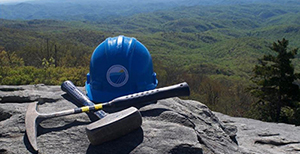
Our faculty have expertise in all fields of the Earth and Environmental sciences.
Click on our each of our research programs below to see what we do!
How does the earth move?
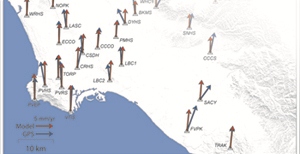
Tectonics Research Group:
What processes affect water supply and quality?

Hydrology and Environmental Geology Research Group:
What do fossils tell us?
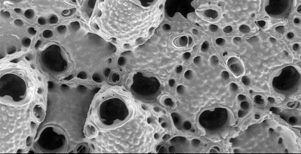
Paleontology Research Group:
What do landforms tell us? How do humans influence landscapes?
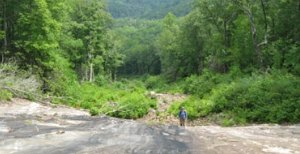
Surface Processes Research Group
What do the minerals in rocks tell us? What is the role they play in the environment?
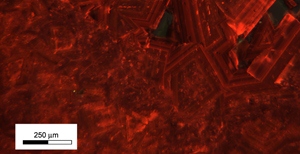
Mineralogy, Petrology, and Geochemistry Research Group:
How is Earth's climate recorded in minerals, rocks, sediment, water, and ice? How has climate changed through time?

Records of Climate Change Research Group:
What's so special about our department?
Ask A Geologist
You've got questions? We've got answers! Ask A Geologist!
Did you find something that puzzled you in your backyard or on top of a mountain? Have questions about local environmental problems? Want to know about what's going on in Boone Creek, the Watauga River, and the New River? Concerned about fracking in your region? Do you have a mineral that you can't identify? Think you found a meteorite? We will do our best to answer any geological/environmental question. We also have pages that answer some of our most frequently asked questions.
Latest News
My fault or yours — earthquake source detection gets lift from App State
BOONE, N.C. — Linking earthquakes with the most likely causative fault just got better, thanks to an externally-funded project by Dr. Scott Mar...
Dr. Adam Benfield Launches Past Climate and Ecosystems Research in Southern Appalachian Bogs
Since joining the Department of Geological and Environmental Sciences at the start of the 2025–2026 academic year, Assistant Professor Dr. Adam Benf...
GES Students Head to Death Valley for Inaugural Winter Field Course
From December 30, 2025, to January 10, 2026, GES faculty Dr. Brandon Lutz and Morgan Baker led a group of 13 students to the remote Mojave Desert in e...
Turning point: Global greenhouse emissions will soon flatten or decline [faculty featured]
In July, a team of scientists assembled on a video call to study an anomalous wobble in a data curve. This blip didn’t signal a new particle decay i...
Dr. Bob Swarthout co-authors chemical analysis of USS Arizona oil leak
BOONE, N.C. — Dr. Bob Swarthout, associate professor in the Department of Chemistry and Fermentation Sciences and Department of ...
